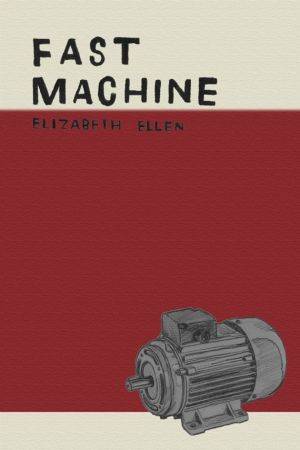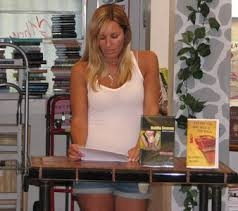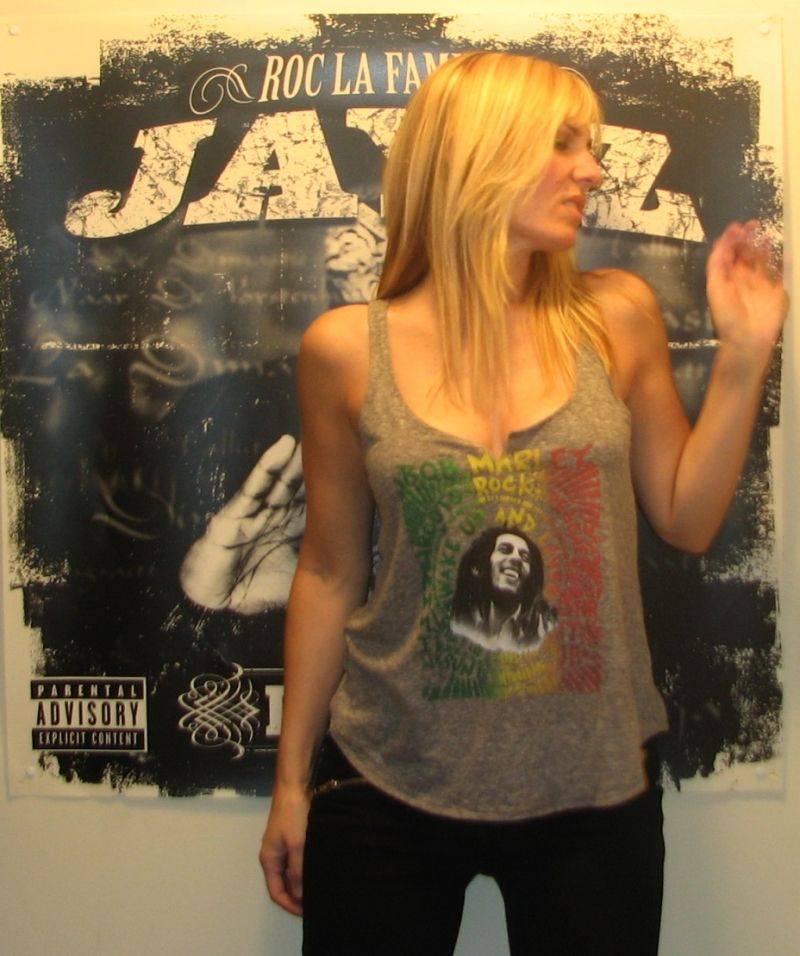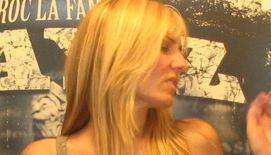One of the recurring ideas in conducting (and reading) this week’s interviews with the author panel at Pygmalion Lit Fest is that these writers are as fascinating in conversation as they are on the page. There is a love of language, a quickness of mind, a poetic flow that makes literary types—like today’s interviewee, Elizabeth Ellen—so much fun that it’s practically a moral imperative that you get your book-lovin’ ass down to the live reading series and check them out in person.
Another recurring motif here (aside from the fact that these folks are sometimes difficult to get a response from, but that’s beside the point) is that the writers coming to C-U this week love to hear other writers read in front of an audience.
As proof of this, I point to Ms. Ellen’s response to a comment from her interviewer, Smile Politely’s John Milas, that he had never been to a live reading:
wait…just now reading your whole email. you’ve NEVER been to a reading? what???
dude, must sees: lindsay hunter and amelia gray.
some people are good readers. some are good writers.
rarely is someone both.
those two ladies are both.
Enough said.
On with the interview, as John Milas chats with Elizabeth Ellen.
********
Smile Politely: What’s the most annoying question you get asked about your work?
Elizabeth Ellen: Okay, most annoying question? Wow. Let me think… Probably something about sex. Like, why do I write about sex so much or something. Which always surprises me as I haven’t written about sex much in last 3-5 years. But I guess my earlier stories (as is often the case) were more “sexual.” So…yeah. Something about that.
 SP: One reviewer said, of Fast Machine, “It’s a book that—as a father—I had to be careful reading.” How do you take that type of reaction?
SP: One reviewer said, of Fast Machine, “It’s a book that—as a father—I had to be careful reading.” How do you take that type of reaction?
Ellen: OK, this is my new least favorite question. Ha. I thought it was stupid. I have a daughter. He has a daughter. I’m a mother. He’s a father. We’re both, I think, writers. What’s to be careful? I guess I’ve never been “careful” with regard to books/film/music/art with regard to my daughter. I don’t even know what being “careful” with regard to her would mean. I think children are either not old enough to understand something “adult” and then it’s a non-issue, or they are old enough, and it’s something you discuss. My daughter and I are constantly having discussions about books/film/music/art/ethics/values, etc. But I don’t ever feel the need to be “careful” with her. She’s bright, empathetic, passionate about learning and quick-witted. What’s to worry?
SP: On your Tumblr page, you make some repeated references to people being boring and writing boring stories. What to you is boring in writing, and what’s interesting?
 Ellen: [Laughs] Do I? I always assume no one is actually looking at my tumblr. Taken out of context, that seems like a pretty bratty thing to say. (And maybe even in context.) I guess I get tired of being told a certain book is brilliant, when there are a hundredother books of equal brilliance not being talked about. Seems political. Big surprise. Welcome to adulthood, Elizabeth! But, everyone has their own taste. I have a bias against what I consider…fabricated, heavily-crafted work, that seems to keep the reader at a distance. It seems less relatable to me. I like to feel as though a lot of the author is in the story or novel. Not that it’s a “memoir,” but that the author is offering us an honest portrayal of something that happened to him/her, even if fictionalized. So I gravitate to first-person narratives. But that’s just me. That’s just what I’m into. Perfect example of this is Of Human Bondage, which I read this past spring/summer, and which is actually told in third-person but feels extremely personal.
Ellen: [Laughs] Do I? I always assume no one is actually looking at my tumblr. Taken out of context, that seems like a pretty bratty thing to say. (And maybe even in context.) I guess I get tired of being told a certain book is brilliant, when there are a hundredother books of equal brilliance not being talked about. Seems political. Big surprise. Welcome to adulthood, Elizabeth! But, everyone has their own taste. I have a bias against what I consider…fabricated, heavily-crafted work, that seems to keep the reader at a distance. It seems less relatable to me. I like to feel as though a lot of the author is in the story or novel. Not that it’s a “memoir,” but that the author is offering us an honest portrayal of something that happened to him/her, even if fictionalized. So I gravitate to first-person narratives. But that’s just me. That’s just what I’m into. Perfect example of this is Of Human Bondage, which I read this past spring/summer, and which is actually told in third-person but feels extremely personal.
SP: Is there a specific story or collection of yours that you direct newcomers to read if they’re unfamiliar with your work?
Ellen: I have never had this opportunity, to direct someone to read something of mine. But I suppose if it were to happen, I would maybe direct them to “Teen Culture,” my story that was published last year in American Short Fiction.
SP: Do you practice a reading/writing routine that most other writers follow, or do you think yours is more idiosyncratic?
Ellen: Well, I’m not sure what other writers’ routines are like. When I’m really in a good “routine,” I try to write 2-3 hours first thing in the morning, 5 or 6 days a week. That happens weeks at a time, and then for weeks at a time, I’ll be much more sporadic. As for reading, I went through a phase five years ago in which I almost never read a novel (or more than the first quarter of a novel) and only read story collections. Now I only read novels. Or memoirs. And I try to have one or more going at all times. Still missing Of Human Bondage, which took me so long to read but which was such a pleasure.

SP: When was your first public reading, and how did the experience go?
Ellen: My first public reading was actually OK. The second and third were dreadful! It was in Chicago at a bar called The Hideout, and I was one of…four or five readers? And a band. This was probably close to ten years ago. It was a reading for the now defunct literary journal, Pindeldyboz. I read a couple short, humorous pieces, and the audience seemed receptive/ready to laugh. And you could still smoke in bars then, so it was all good.
Check out the schedule of readings and readers, and catch Elizabeth Ellen and the rest of the Pygmalion Lit Festival lineup this week.








